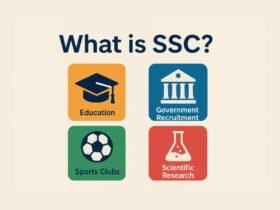What Are the Benefits of Knowledge Management in Today’s Business Environment?

In an era where information equates to power, knowledge management has become a cornerstone for any business looking to thrive. It encapsulates strategies and practices used to identify, create, represent, distribute, and enable the adoption of insights and experiences. These are the hidden assets that can catapult companies into market leadership positions. What are the benefits of Knowledge Management? Below, we delve into the numerous advantages that knowledge management can bring to an organization, diving into its contribution to decision-making, innovation, agility, and competitive advantage.
Understanding Knowledge Management and Its Rising Importance in Business

Knowledge Management (KM) refers to the systematic management of an organization’s knowledge assets to create value and meet tactical and strategic requirements. It involves the development of processes that support the identification, capture, storage, and dissemination of information. In today’s hyper-competitive and information-driven business environment, KM is critical for staying ahead.
Comprehensive KM practices allow for the efficient handling of data and expertise, leading to an enhanced information lifecycle and a more informed workforce. Employees at all levels gain access to valuable insights that mitigate redundancy and promote best practices, bolstering the firm’s overall competence.
Moreover, organizations with adept knowledge management can better adapt to market changes and emerging trends. As they carve a niche in fostering a knowledge-centric culture, these businesses find themselves at the forefront of innovation and thought leadership.
Enhancing Decision Making With Knowledge Utilization
Decision-making is the backbone of any business strategy, and KM significantly amplifies its potency. A coherent KM framework ensures that stakeholders have the requisite information at their fingertips, crucial for making swift, informed decisions. This enhances the overall quality of decisions by providing a comprehensive view of the business landscape.
Errors in judgment often stem from incomplete or outdated information. Knowledge Management helps in creating a repository of accurate and up-to-date information which, when analyzed, yields actionable insights that guide critical business decisions. This reduces risk and ensures that organizations are more proactive than reactive.
Managers and leaders find themselves better equipped to predict trends and outcomes when they can tap into a rich vein of organizational knowledge. This predictive capacity can lead to more effective planning, forecasting, and resource allocation, further optimizing business operations.
Boosting Organizational Agility With Efficient Knowledge Management

Business agility is paramount for companies aiming to adapt quickly to market changes and innovations. Effective KM acts as an accelerator for agility by facilitating smooth information flow and rapid learning cycles. As such, companies can swiftly respond to new challenges.
An agile organization is marked by its ability to leverage its collective knowledge. A robust KM strategy enables the workforce to utilize previous experiences, preventing repetitive mistakes and fostering continuous improvement. The agility stems from a workforce that learns and adapts in tandem with the organization’s strategic objectives.
KM facilitates collaboration and knowledge sharing among employees, breaking down silos that often hinder progress. It fosters a more dynamic and responsive organization.
Layering advanced analytics and artificial intelligence on top of KM practices can further empower organizations to predict and react with even greater precision. In a world driven by change, the agility provided by effective KM can provide a significant competitive edge.
Altogether, knowledge management forms a crucial asset in carving out a niche in today’s fast-paced business world. It empowers organizations to maximize their intellectual capital and innovate continually, driving growth and enabling them to stay a step ahead of the competition.

























